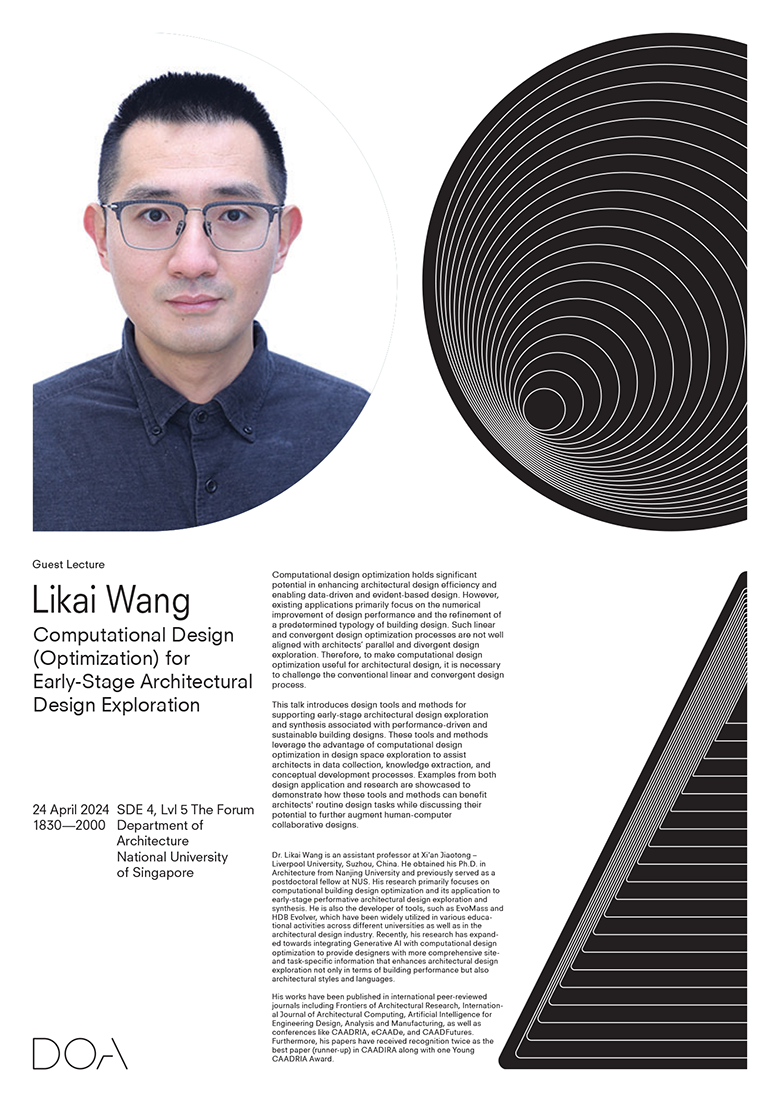Computational Design (Optimization) for Early-Stage Architectural Design Exploration
Name of Event/Lecture
Computational Design (Optimization) for Early-Stage Architectural Design Exploration
Name of Speaker
Likai Wang
Location
SDE4 Level 5, The Forum

Computational design optimization holds significant potential in enhancing architectural design efficiency and enabling data-driven and evident-based design. However, existing applications primarily focus on the numerical improvement of design performance and the refinement of a predetermined typology of building design. Such linear and convergent design optimization processes are not well aligned with architects’ parallel and divergent design exploration. Therefore, to make computational design optimization useful for architectural design, it is necessary to challenge the conventional linear and convergent design process.
This talk introduces design tools and methods for supporting early-stage architectural design exploration and synthesis associated with performance-driven and sustainable building designs. These tools and methods leverage the advantage of computational design optimization in design space exploration to assist architects in data collection, knowledge extraction, and conceptual development processes. Examples from both design application and research are showcased to demonstrate how these tools and methods can benefit architects’ routine design tasks while discussing their potential to further augment human-computer collaborative designs.
Dr. Likai Wang is an assistant professor at Xi’an Jiaotong – Liverpool University, Suzhou, China. He obtained his Ph.D. in Architecture from Nanjing University and previously served as a postdoctoral fellow at NUS. His research primarily focuses on computational building design optimization and its application to early-stage performative architectural design exploration and synthesis. He is also the developer of tools, such as EvoMass and HDB Evolver, which have been widely utilized in various educational activities across different universities as well as in the architectural design industry. Recently, his research has expanded towards integrating Generative AI with computational design optimization to provide designers with more comprehensive site- and task-specific information that enhances architectural design exploration not only in terms of building performance but also architectural styles and languages.
His works have been published in international peer-reviewed journals including Frontiers of Architectural Research, International Journal of Architectural Computing, Artificial Intelligence for Engineering Design, Analysis and Manufacturing, as well as conferences like CAADRIA, eCAADe, and CAADFutures. Furthermore, his papers have received recognition twice as the best paper (runner-up) in CAADIRA along with one Young CAADRIA Award.